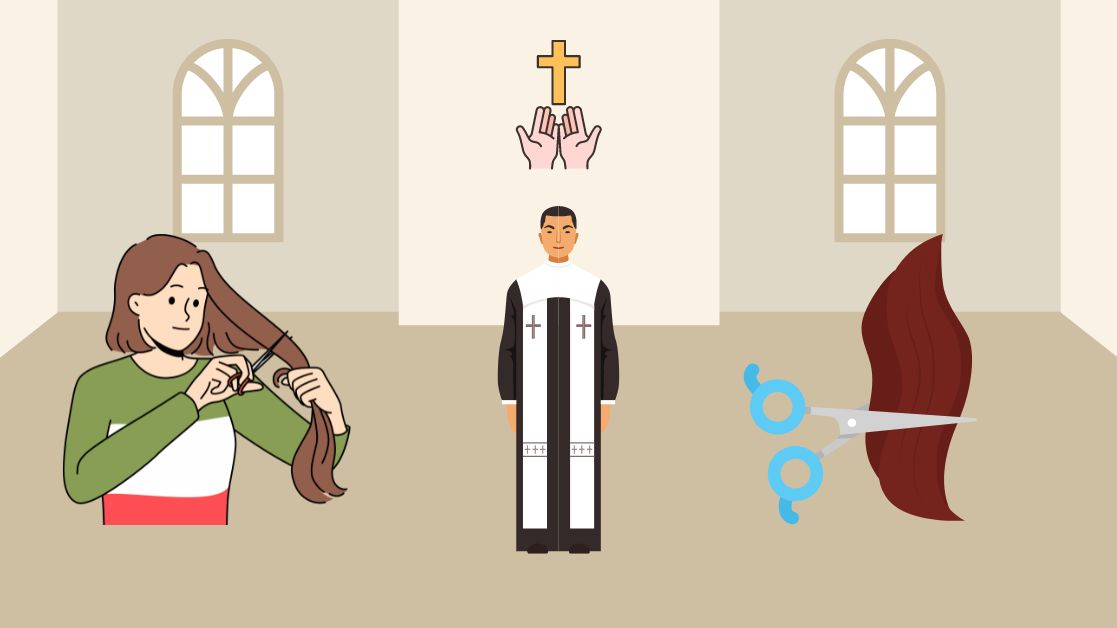No, cutting your hair is not a sin in the Bible. It was never mentioned in Bible that cutting your hair is an offensive act to God.
However, there were certain parts in the Bible wherein people were led to ask questions such as is it a sin to cut or keep your hair short?
This post will briefly discuss why people ask such questions and even believe cutting hair is a sign of disobedience to God’s word.
Long Hair in the Old Testament
Long hair was common among Jewish women. Some men had long hair as well. Many scholars believe that long hair was a cultural norm for both men and women during the time of Jesus Christ.
Some claimed that the Israelites wore long hair to distinguish themselves from the Egyptians. Shaving the head and face was a cultural norm in ancient Egypt (Genesis 41:14).
Furthermore, having long hair and a lot of hair was a sign of youth and good health in ancient Israel. On the other hand, baldness was linked to diseases such as leprosy (Lev 13:40-44).
What Does the Scripture Say About Cutting Hair?
In 1 Corinthians 11:15, it was mentioned that long hair was given to a woman as a covering. It was also said that hair is considered to be her glory.
Something that is a glory deserves special care and attention. Hair should be groomed and worn attractively and tastefully. It would quickly become unappealing if left alone.
Some people have been afraid to cut or style their hair because Paul mentions long hair. However, 1 Corinthians 11:15 does not say “uncut hair”; it says “long hair.” The Bible says nothing about a woman’s hair being cut, curled, styled, or set in a fashionable way.
It is critical to understand that Paul only discusses customs and traditions here, not salvation matters that will keep us from heaven. When read in the context of the time’s history and traditions, we recognize Paul was addressing how to adhere to the custom of veiling for married women.
On the other hand, men should not wear women’s clothing, according to Deuteronomy 22:5. However, it does not mention that men are prohibited from cutting their hair short.
A man or woman who took a Nazirite vow was not permitted to cut his or her hair (Numbers 6:2-4).
The Nazirite vow was an unusual devotional vow to God. It was used for a time when the person dedicated themselves to God. It was an expression of complete dedication.
The Nazirite vow had a beginning and an endpoint. During the vow, the most interesting commitment a person had to make was not to cut his hair. However, when the time limit expired, the individual was required to cut their hair.
Hence, keeping one’s hair long or cutting it short is not a sinful act.
Bottom Line
Cutting one’s hair is not a sin. Some may argue this point using the Bible verses. However, it is critical that we do not become caught up in trying to prove our points when we read the scriptures.
Instead, we must read the Bible with an open mind and heart in hopes of finding God’s truth rather than our own.
It’s also a beneficial approach to comprehend the historical context of a passage before drawing our conclusions.




